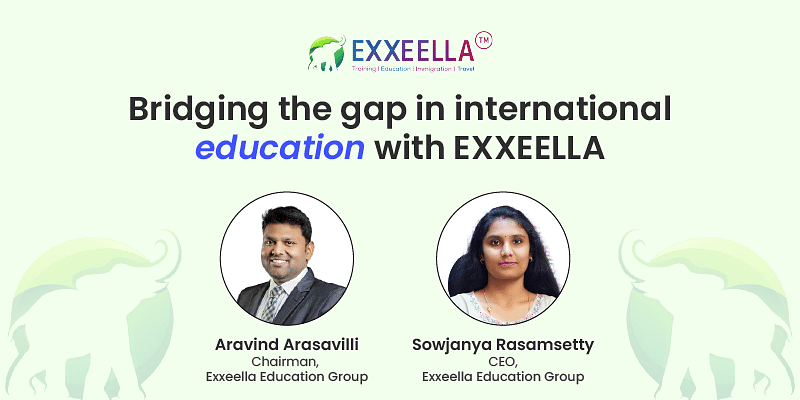What are the key parameters that can help startups raise funding at different stages
The recent news and talk of dearth in funding and startups firing and shutting operations, there are questions on whether investors are open for the next round of funding or not. Now that the seed and angel rounds are done, what next for startups, what defines their next steps and what will help them get the next rounds of funding. What will help startups grow and continue to get invested in. YourStory spoke to a few investors to understand the key parameters that help startups get funded.

1. Different stages, Different strokes
As we all know, each stage of investments require different kinds of detailing. The seed or the angel round is focussed on the quality of the idea, the initial product, and the size of the market. In the seed stage there isn't much to go by other than these parameters, the stakes change as the levels and rounds change.
Each stage differs. There are some common parameters and some different ones according to the stage. The parameter that works across all stages is - what is the problem definition, what problem is the company trying to solve and how big is it. What's the use case scenario, what is the theme like, is it strong. This would broadly apply to all sectors.
A. Seed round
Bharati Jacob, Managing Partner, Seedfund, says that in seed stages there isn't much data in the company so it's hard to evaluate how big the market actually is so the focus is on the team's ability to execute. "In each stage, at least one extra parameter gets added," says Alok Goel, MD, SAIF Partners. At every stage it's important to define your goals for the next stage of funding.
"Before Series A, you need to show you have a working tech, you're working in a large market, are able to attract a good team. Also, the last three months of growth is crucial before going to Series A," says Anand Lunia, Founder, India Quotient.
B. Series A sees the beginnings of a sustainable business
Series A the focus is on the initial product, some market validation, and scalability. In this stage, what have you done with an angel or a seed round becomes important. Parameters like the rate of service, semblance of traction with consumers become the key.
Sumer Juneja, Principal, Norwest Partners, says, "In Series A, we would like to see if you will be able to understand customer services, understand the product and what's your vision, do you have the beginnings of a sustainable business."
He adds that in the Series A round traction is too early. But directionally if the market is large enough, what is the kind of product they've developed so far, what are they thinking about it - is what the investors see.
Gourav Bhattacharya, Vice President Matrix Partners, says in series A they look at:
a) Proof of business model and scalability (e.g. unit economics and CAC/LTV).
b) Headroom for growth in a large market.
c) Quality of team (founding team and next level).
Product-market fit becomes important. Alok adds that whatever product you've built and the early traction you've been able to get, does this show some connect with the customers matters. Are customers coming back to it?
Investors get a sense of the market space by doing more research, speaking to people who run similar businesses in the offline world and understanding how big the space actually is. "That’s the first filter we have, whether I can potentially on paper have a large enough volume of orders per day, user base, unique visitors, or whatever metric you use. In the end it should be a large market base," adds Sumer.
C. Series B the game becomes tougher
"At Series B, an investor is looking for an 8–10X return on a decent sized cheque (>5M), so you need to show the investor how that is going happen," says Gourav.
For Series B, you need to prove that you have a supply you can sell to, you've an entire supply chain and can maintain growth without affecting quality. In this stage, there are more data points to fall back on. Series B sees how big the market is, can it be scaled across the country or the globe.
For example, if you’re in the food business and have launched in 20 cities and every city is showing you 100 orders, that's not a large market. But if you launch in one suburb in Bengaluru and get close to 200 orders, then you can possibly think of expanding across the city or the country. Demonstrate a large market. You need to be able to show that you're building an advantage, because of technology.
2. The new superhero in the block – the founder
This seems like a no-brainer, every investor and VC believes that the team and the founders are crucial at any stage of investment. Anand adds that a founder should be 10 times better than others. “You need to be able to think everything, if you prove to me that you will look after my money like your money, then trust is established ,” Sumer adds.
"They need to be like superheroes, do things that normal people just can't conceive of. You need to be a master of all - you need to have communication ability, artistic ability, creativity, intelligence and be a good listener, communicator, learner, leader, get work done from people, and display ability to take pressure," says Anand.
A. Ability of the founders to attract good talent
As an entrepreneur, when you go beyond the seed rounds of funding, the investors begin to look at the team, do you have a semblance of a core team in place. While it's unlikely that the core team is set, during Series A investors see if you have the ability to get the right team and kind of people in place.
Anand Lunia adds that A grade founces or founding team will hire A+ people. He adds that the demonstration that you're able to attract a team as good as the founders or better at reasonable cost is big. This is apart from founders being good and reliable. The investors say that you might not have rock stars around the founder, but you do get a sense of the type of people the founder attracts at the Series A and B level.
"My view is that if you get your seniors, particularly those who are three to four years senior to join you. It shows that these people not only respect the founder because he is smart or has a good IQ but these people have either hung out with you or been associated with you in some way to know that you're a good reliable person to work with. There's more to most business than just a bunch of algorithms. You need to have an EQ and IQ balance," says Sumer.
B. Ability to withstand high pressure
"The tenacity of the founders and ability to withstand tough times plays a crucial role," adds Alok. As the markets grow, the pressure on the founder to perform keeps increasing. As a founder, you need to understand the pulse of the market and be willing to take in risks and the pressures that come along with it. Sumer adds that you also need to ensure you get in good like-minded investors on board who you can guide you through the storm in tough times.
C. Willingness to learn
How passionate you're about your own idea, how willing are you to learn from the market. Willingness to learn is very important.
Bharati adds that the willingness of the founder to learn from the market is very important. Nobody is born with all skills, therefore, as a founder you need to understand that and learn the necessary skills. In a founding team, you look at extremely high intelligence, high productivity. One needs to have loads of personal commitment.
D. Clarity of vision and think 10 steps ahead
It possibly is one parameter that every investor seeks in a founder. The vision needs to be very clear. Always have two plans to think about. Present one of it when you get x amount of money and the other for a scenario with lesser money.
"Can you dial up or dial down, how many dials and levers do you have in the business to manoeuvre when things go bad. It need not be shown but needs to be part of the business," says Sumer.
There are chances you exhaust the money while pitching. Anand adds that VC looks for two meetings and between those ones you need to demonstrate some growth or changes. You need to reserve some surprises for them.
Sumer adds that research is very crucial, as a founder you need to be able to project and plan the growth of your business.
3. Intrinsic advice on funding
- Bharati says – "Funding is not an end by itself, it is one aspect in the journey of your need to create a valuable company. As long as you focus on the execution of the fundamentals of the business, till you get consumers, get them to pay money for it, figure out profits, you will find funding. Do you create value and be better than what you were yesterday - Is that the question you answer every day, whether you've got one more consumer or 10 more, or figured out how to make profits. As long as you're on an upward path you'll find funding."
- Alok says – “Take one step at a time. Define a keystone metric that you will be using to prove any angle, be it the product market fit, be it growth, customer retention, and carefully monitor the metric and then present it to the investors. Don't monitor one metric and then present something else. Track the right metric for the business.”
- Gourav says – “Startups should look at raising their next rounds of capital when they feel the company is ready to meet the expectations that come with the next round of capital. For example, for a series A round the company should be ready for scaling in a market.”
- Sumer says – “A founder needs to think of everything, eventually, do you think either volume, value or traffic wise what is the potential here to become a large business? Don't be a me-too business, because as investors we begin to think are you really smart or is it another me-too business.”
Gourav adds, “One piece of advice for startups raising money – rejection is part of the game, and shouldn't be taken personally. It only takes one investor to believe in the story for a round to come together. This is just a rough guide, and may not be true for all investments.”









![[Funding roundup] iSprout, Healthfab, Rage Coffee, Stage3, others raise capital](https://images.yourstory.com/cs/2/a09f22505c6411ea9c48a10bad99c62f/Image03w0-1640781482458.jpg)

